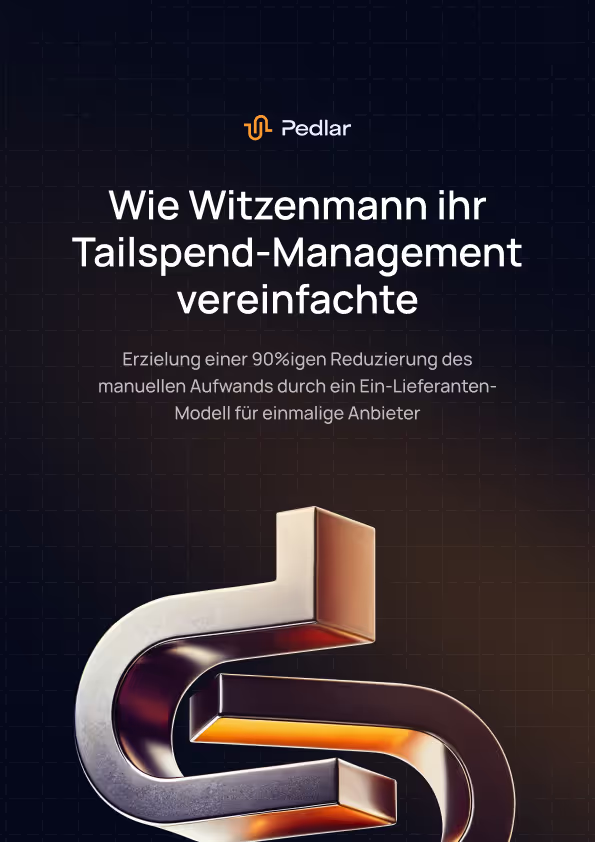In recent years, the topic of supply chains has developed from a logistical side note to a central strategic risk for companies.

While companies now often keep a close eye on their direct suppliers, indirect demands remain largely uncontrolled. These are spontaneous orders from specialist departments for special parts, services or consumables, often without a long-term supply relationship.
These decentralized individual purchases create an enormous administrative burden. Each individual process can take several hours to weeks, from the supplier system to offer comparisons to the review and approval of invoices. At the same time, there is an opaque supplier landscape that not only ties up resources but also makes it difficult to comply with regulatory obligations. For companies that are increasingly forced to audit their entire supply chain for risks, human rights and sustainability, this is a significant problem.
Pedlar meets this challenge with a simple yet effective principle. A 1-creditor model. Instead of processing every single order via a new or existing supplier, Pedlar acts as the sole creditor for all indirect, irregular purchases. Orders for one-time supplies are all centred via Pedlar. Suppliers remain in the background, purchasing is relieved, accounting receives standardized, correct documents, and there is only one central invoice. This not only significantly reduces process costs, but above all creates control.
By concentrating the large number of individual business partners in one position, Pedlar makes it possible to set up clean data and processes even for orders that were previously elusive. All orders are documented, traceable and can be retrieved centrally. This helps companies to fulfill their responsibilities in the supply chain because every transaction becomes transparent, because every procurement takes place via a regulated channel and because there are no longer any shadow suppliers who evade traceability.
Pedlar This means that not only creates efficiency in purchasing, but also the structural requirements for compliance and risk management. It allows companies to bring the complex reality of their operational procurement back into a controllable form. Not through additional systems or software, but through an intelligent, well-thought-out service. At a time when transparency and responsibility in the supply chain have become a corporate obligation, Pedlar provides a solution that starts where traditional purchasing reaches its limits.
Supply chains are currently under pressure more than ever before. The mix of geopolitical tensions, fluctuating commodity prices and growing regulatory burdens means that companies today must not only optimize their supply chains, but above all stabilize them. Traditional procurement processes are threatening to slow down, particularly when it comes to indirect and one-off requirements.
Transport costs are rising massively worldwide. The drivers are volatile energy prices, shortages of drivers and new trade barriers. Companies are forced to make several adjustments and react immediately. This is exactly where purchasing becomes Achilles heel. When manual processes, media breaks and countless suppliers determine everyday life instead of agile processes, there is a lack of speed and transparency.
Talk to us and learn how to use Pedlar's 1‑Creditor Model to minimize supply chain risks while remaining flexible — without lengthy implementation and with immediate benefits.
